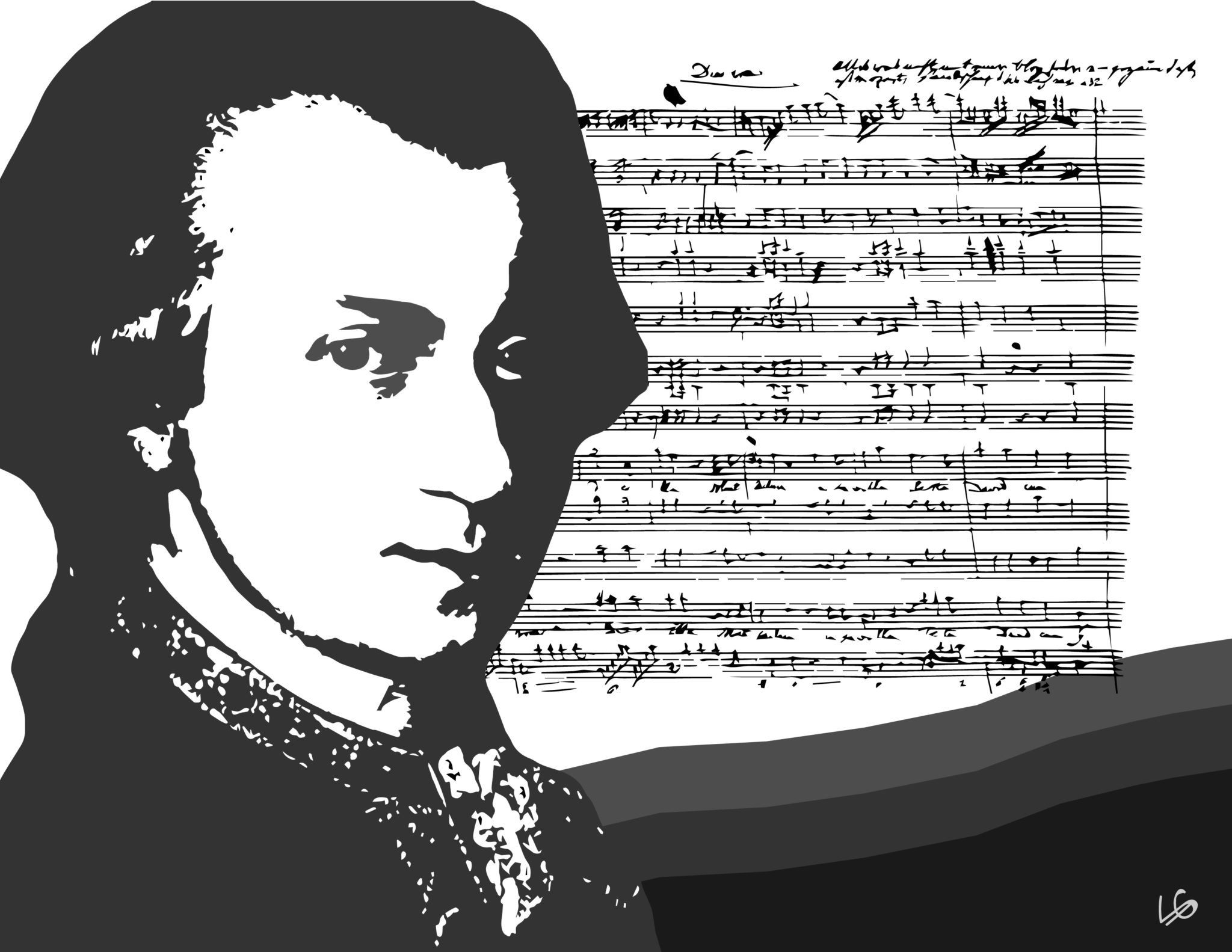
On Tuesday and Thursday afternoons, over 1,000 students seeking the good life fill Battell Chapel to the brim. Last Friday night, Sam Hollister ’18 and 100 students attracted a similarly massive crowd, performing Mozart’s “Requiem” mass.
The “Requiem” is particularly famous for a morbid reason: it was Mozart’s final composition. He died while writing the “lacrimosa” section of the piece. Therefore, the popularized version of Mozart’s requiem mass, a piece of music specified for funeral masses, was completed by the Austrian composer and Mozart’s musical pupil, Franz Xaver Süssmayr.
Battell was the ideal location for such a performance: the Latin lyrics, “Huic ergo parce Deus/ Pie Jesu Domine/ Dona eis requiem,” which translate to “Therefore, spare him O God/ Merciful Jesus/ Lord grant them eternal rest,” acquires a greater significance below the stained-glass windows and religious symbolism present in Battell.
A multitude of Yale students, predominantly members of the Yale Symphony orchestra and the Yale Glee Club, composed the orchestra and choir. Approximately 100 students were musically involved in the performance, which was produced by Sofia Laguarda ’20 and Claire Carroll ’18 and was assistant music directed by Emery Kerekes ’21.
The requiem itself is split into eight sections, beginning with the “Introitus” and concluding with the “Communio.” Lasting approximately an hour, Hollister’s performance was exquisite. One is first moved by the magnitude and strength of the piece. The arrangement included constant echoing between vocal groups, especially enhanced by Battell’s awesome acoustics. This highlighted the dramatic changes in theme, volume and style throughout the entire requiem. At times, the soprano section held the piece by a thread, sounding like a chorus of serenading angels, while at other times the audience was blown away by a storm of melodious music.
An undergraduate, an alumnus and Yale School of Music students featured as soloists in the performance: Isobel Anthony ’20 singing the soprano part, Evanna Lai MUS ’16 as alto, James Reese MUS ’18 performing as tenor and Bryan Murray MUS ’18 as baritone. All four vocalists performed sensationally, at times captivating the entirety of Battell on their own.
A defining characteristic of Mozart’s work is its musical complexity in both its vocal and instrumental parts. In one instance, Murray began singing, and he was soon joined by Reese: a duet. Then, Lai joined: a trio! Then! Anthony joined: quartet! What must be noticed is the progression, which started in the baritone register and progressed until he was joined by the soprano vocal register. While each soloist performed exceptionally on their own, they excelled to an even greater degree together.
Despite a majority of separate vocal parts throughout the performance, the final movement powerfully built up, until the vocal bubble popped, resulting in an explosion of unison voices. In that moment, my auditory senses were overwhelmed to a point at which I struggled to feel otherwise. The gravity of the moment thrust itself upon the audience.
Hollister, an up-and-coming conductor who has served as the conductor of the Saybrook Orchestra, the Yale Choral Society and conductor of the 2015 and 2016 Dramat Fall Mainstage productions, displayed a musical prowess beyond his years. As the music ebbed and flowed, as themes changed, as rhythms changed, Hollister followed with a confidence and grace usually only seen in the musical arsenal of a mature conductor. Hollister’s greatest strength may have been his ability to quickly mend any issue: If any orchestral section moved off pace, Hollister restored the temporal order with the move of a hand.
Hollister’s personality echoed his ability: in his post-show speech, the young musician lauded his fellow performers and producers who aided in the organization and execution of the performance. He justly received a bouquet of flowers for his marvelous work. In a word, I describe him as charming.
It cannot go without saying that to perform Mozart can only go amazingly or terribly. An orchestra can perform perfectly and still fail with a mediocre composer, while an immature or incapable performer can ruin inspired, miraculous pieces of music. Only when composer and performers join in perfect harmony can a room be truly mesmerized, blown away by the sound in which they are enveloped. And on Friday night, hundreds were truly awestruck.
Nick Tabio | nick.tabio@yale.edu







